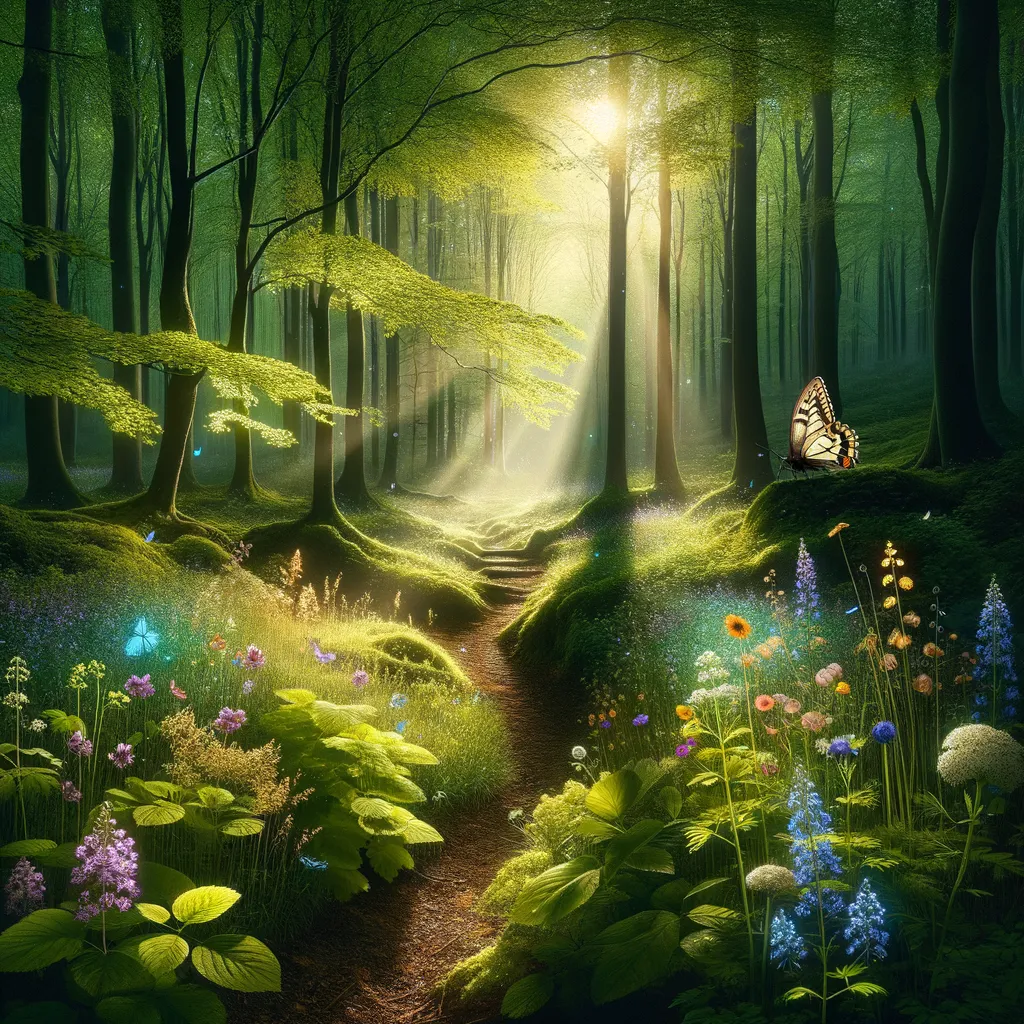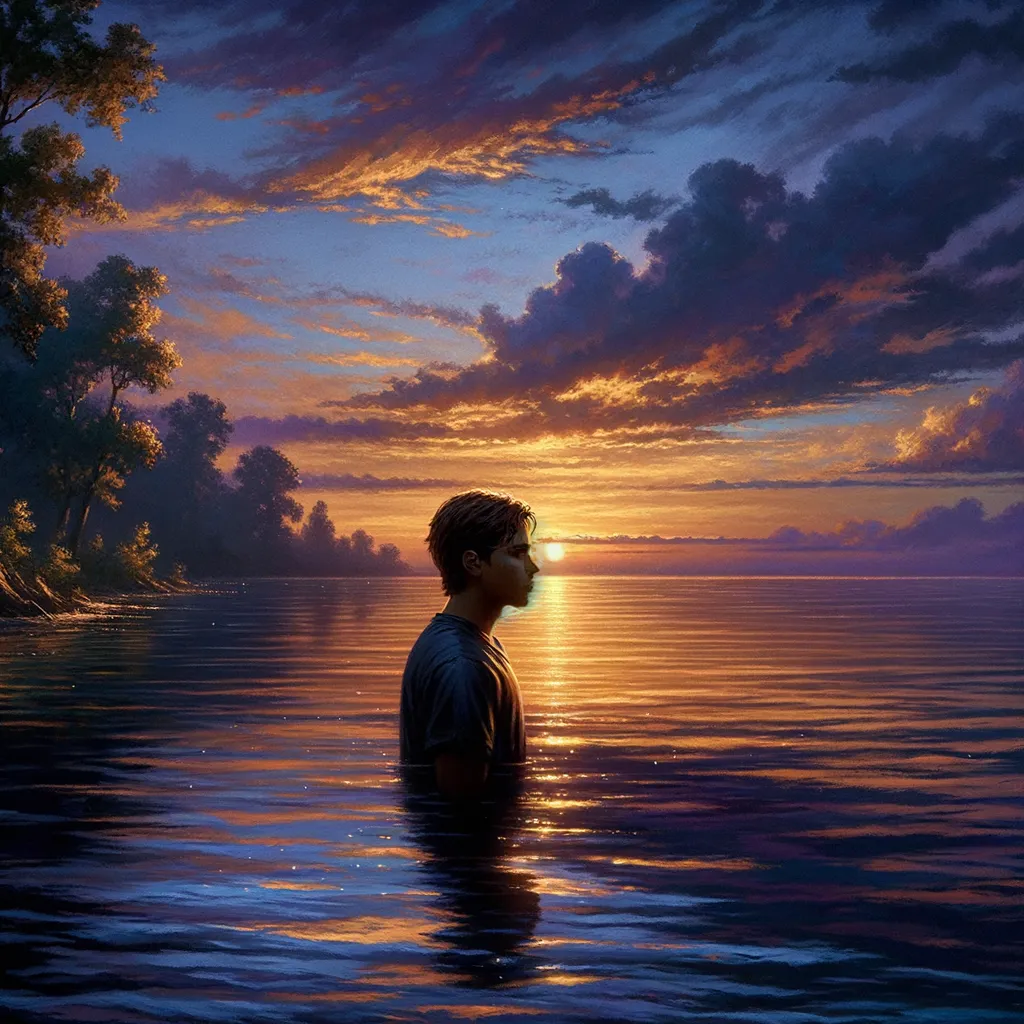Why Clouds Float: A Journey Back to Childlike Wonder
In a sunlit park alive with laughter and the aroma of summer, a child’s innocent question pierces the air: “Why do clouds float, but we can’t?” This simple inquiry unravels the complexities of adulthood, revealing how easily we forget the magic of curiosity amidst our burdens. As the girl gazes at the clouds, her wildflower in hand, she becomes a beacon of wonder, reminding me of a time when every blade of grass held adventure and each cloud was a castle. With fireworks blooming overhead, I realize that her question is a call to reclaim the enchantment of exploration, igniting a desire to challenge the ordinary and embrace the extraordinary. In the quiet of night, under a tapestry of stars, I ponder how to nurture that spark of wonder, daring to float above the weight of certainty that often anchors us to the ground.
In the memory of July 5, 2004, I find myself standing in a sun-drenched park, the air thick with the scents of summer blooms and barbecued delights. The laughter of children dances around me like a melody, weaving through the sounds of sizzling grills and the distant echoes of fireworks. Amidst this tapestry of joy, a small voice cuts through the din, sharp and clear, like a single note in a symphony. A child, no more than six, gazes up at me with wide, curious eyes, her brow furrowed in thought. “Why do clouds float, but we can’t?” she asks, her innocence piercing my adult preoccupations.
The question, simple yet profound, hangs in the air like a soap bubble, shimmering with potential. It is a question I’ve never considered, one that transcends the mundane mechanics of physics and reaches into the essence of wonder itself. As I glance up at the clouds, fluffy and nonchalant, I am struck by the dichotomy of existence: those cottony giants drift effortlessly while we, grounded by our responsibilities and worries, remain tethered to the earth. In that moment, the complexities of adulthood feel burdensome, and I am reminded of the freedom of childhood—a freedom that allows for boundless curiosity.
My gaze returns to the girl, her head tilted as if she’s trying to solve a riddle. In her simplicity, she has unleashed a torrent of thoughts that whirl through my mind. Why do we, as adults, become so ensnared in the web of reality that we forget to ponder the extraordinary? The world around me transforms; the mundane becomes magical. Each cloud appears as a vessel of dreams, floating lazily in a sky that seems to stretch into infinity, inviting exploration.
As I watch her, I notice the way her fingers grasp a wildflower, its delicate petals quivering in the gentle breeze. Nature becomes a canvas for her imagination, and I find myself transported to a time when I, too, saw the world through a lens of wonder. Each blade of grass was a forest, each cloud a castle in the sky. Yet somehow, I have traded that magic for the weight of adult reason, a transaction that feels increasingly unjust.
In that instant, a realization dawns: curiosity is not just a trait of childhood; it is a vital essence of life itself. The girl’s question is a mirror reflecting the parts of me I have forgotten. It becomes a call to arms, urging me to reclaim the enchantment that lies dormant in the corners of my heart. I want to float with the clouds, to be unencumbered by expectations and the gravity of my own doubts. How could I have lost sight of such a simple truth?
The day unfolds around us, the sun dipping lower in the sky, painting everything in hues of gold and amber. As the fireworks begin to bloom overhead, I feel the pull of nostalgia mixed with a renewed sense of purpose. Each burst of color mirrors the girl’s wonder, exploding into life against the backdrop of a deepening night. I realize that this moment is not just a fleeting encounter; it is a revelation, a reminder that the questions we ask shape our reality.
In the days that follow, I find myself seeking out moments of curiosity, whether in the pages of a book or the whispers of the wind. I begin to ask my own questions, challenging assumptions that had become so entrenched that I scarcely recognized them. The world becomes a playground again, filled with infinite possibilities, each one waiting to be explored. I remember that discovery is not limited to the confines of childhood; it can flourish at any age.
Yet, as I embrace this new perspective, I wonder about the implications of our choices. How often do we stifle the questions that could lead to deeper understanding? How frequently do we allow the mundane to eclipse the extraordinary? The answers elude me, tangled in the complexities of life. Still, the spark ignited by that child’s question continues to glow within me, a constant reminder to seek the extraordinary in the ordinary.
In the quiet moments of reflection, I find myself pondering the nature of wonder and its transformative power. What if, in the hustle of our daily lives, we allowed ourselves to float a little, to dream a little? What if we embraced the questions that stir our souls? As I stand beneath a sky filled with stars, I’m left with a thought that echoes in the silence: how do we cultivate the courage to wonder, even in a world that often demands certainty?
In the dance of childhood curiosity and adult responsibility lies the bittersweet truth that wonder, once lost, can always be reclaimed through the simplest of questions.



